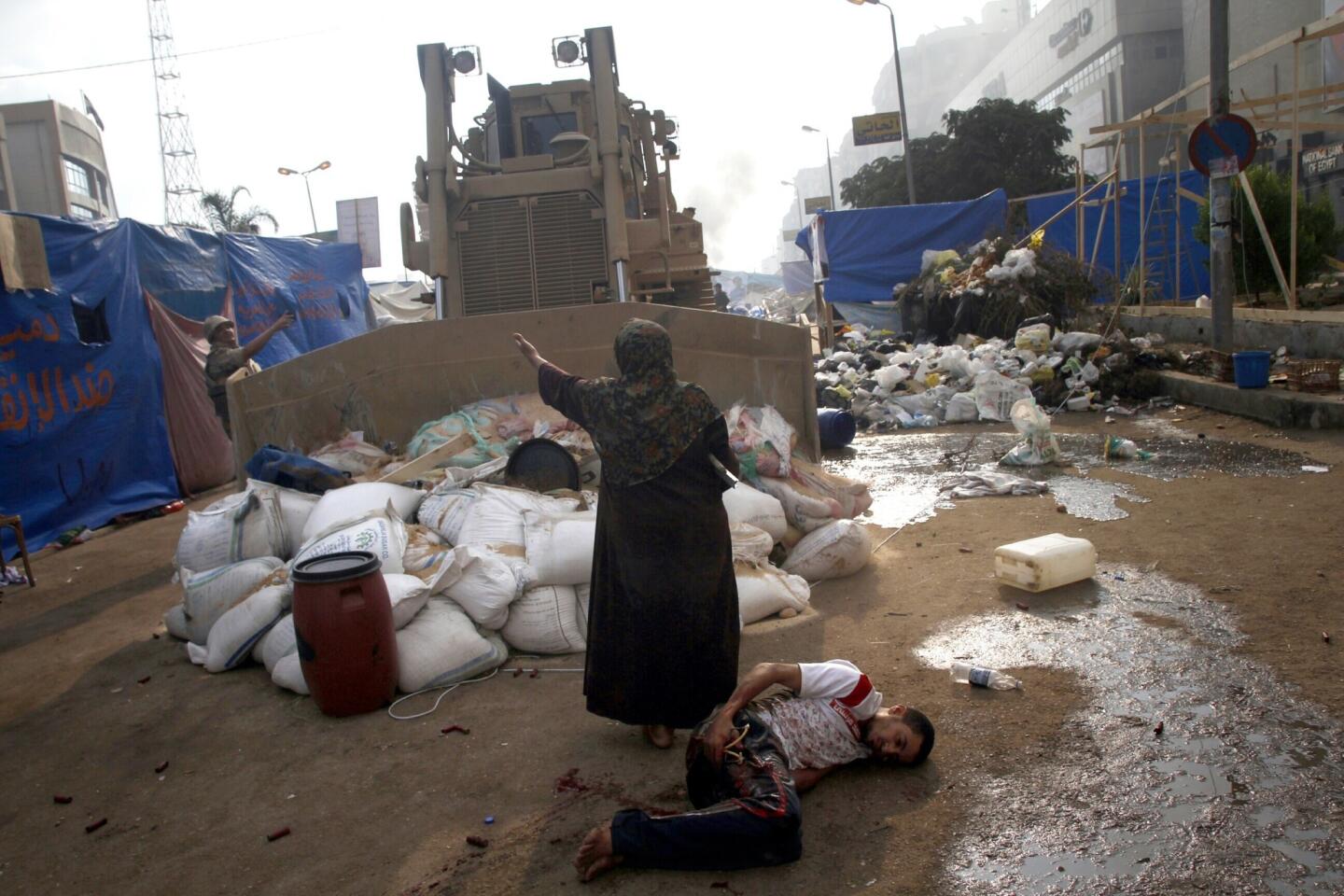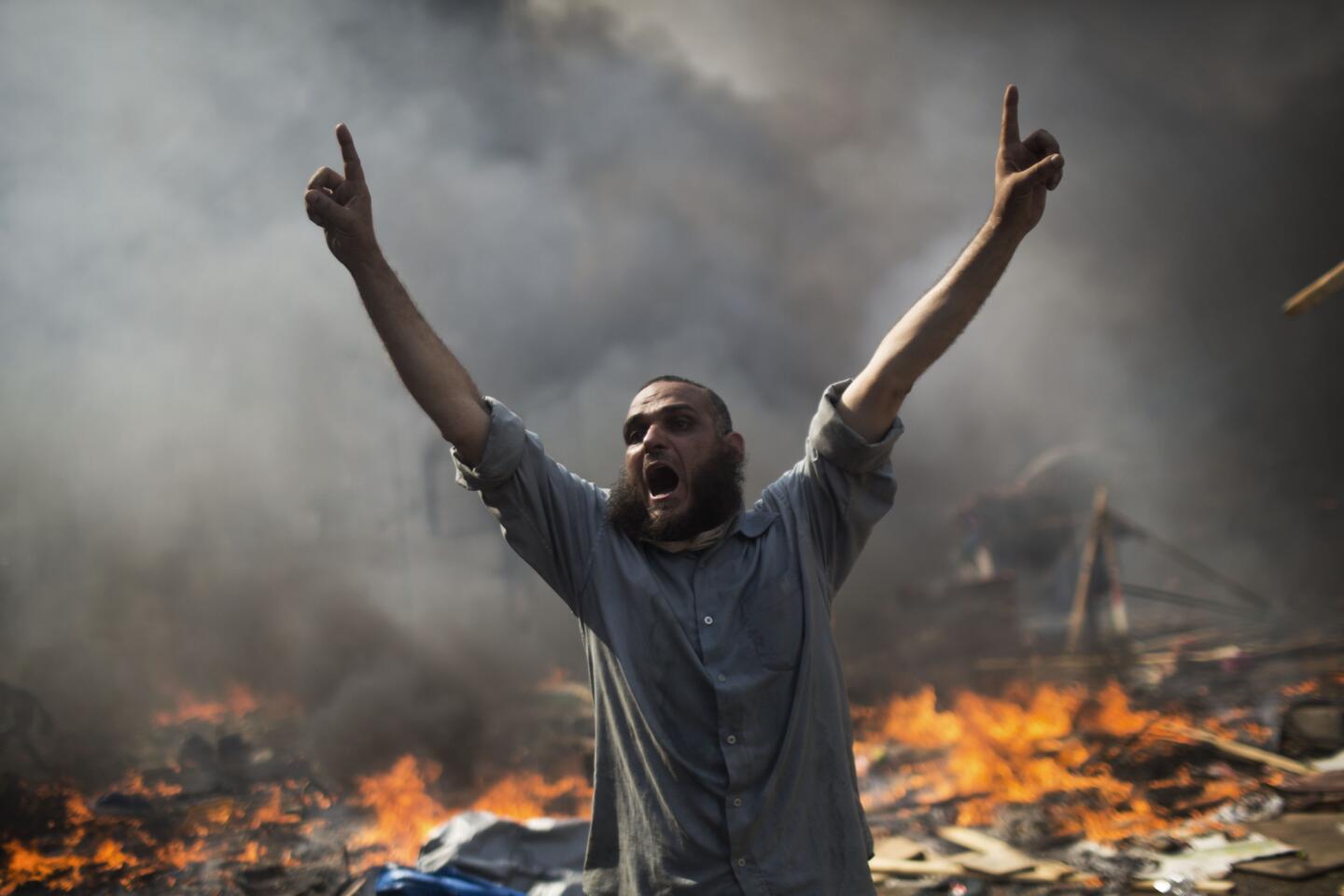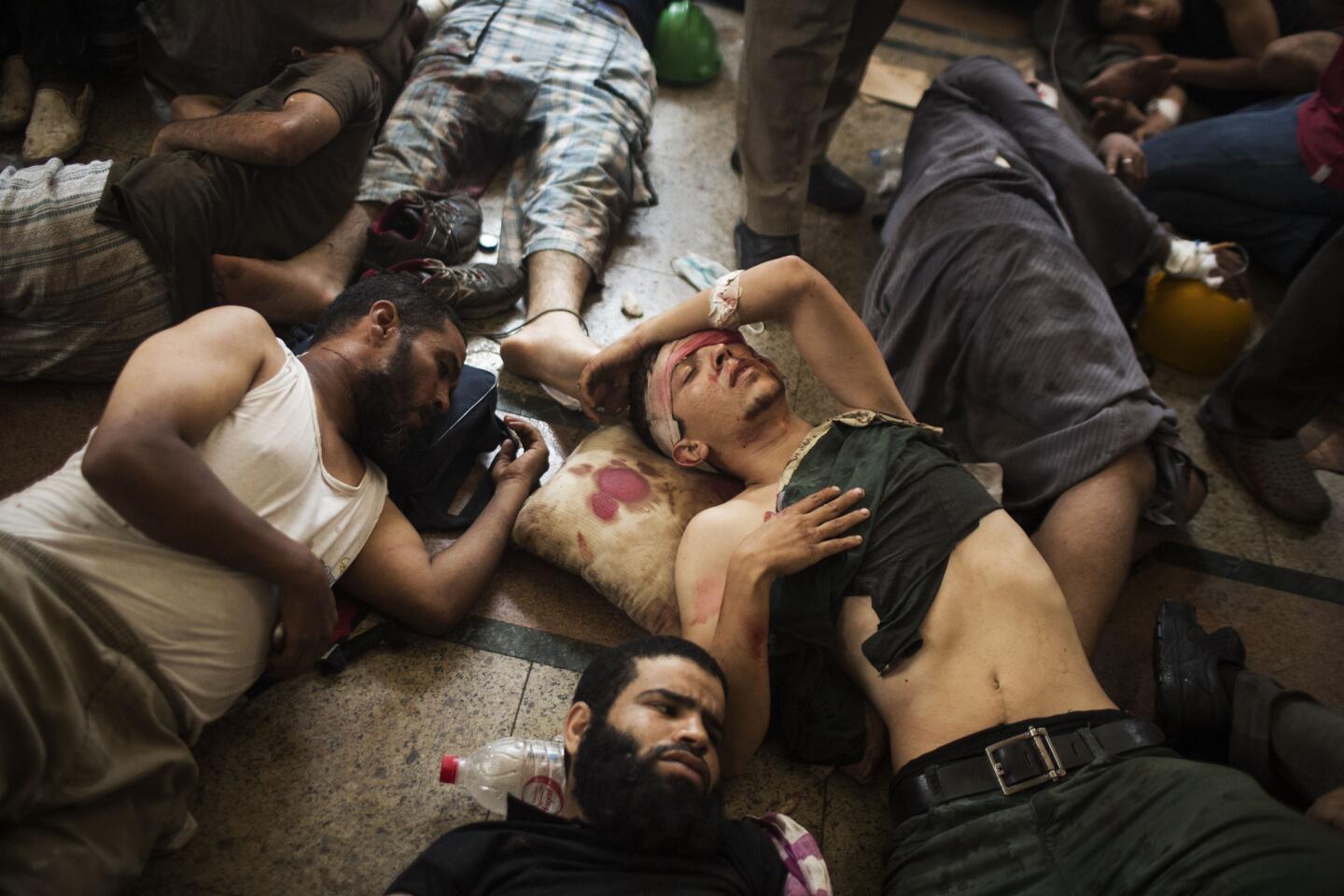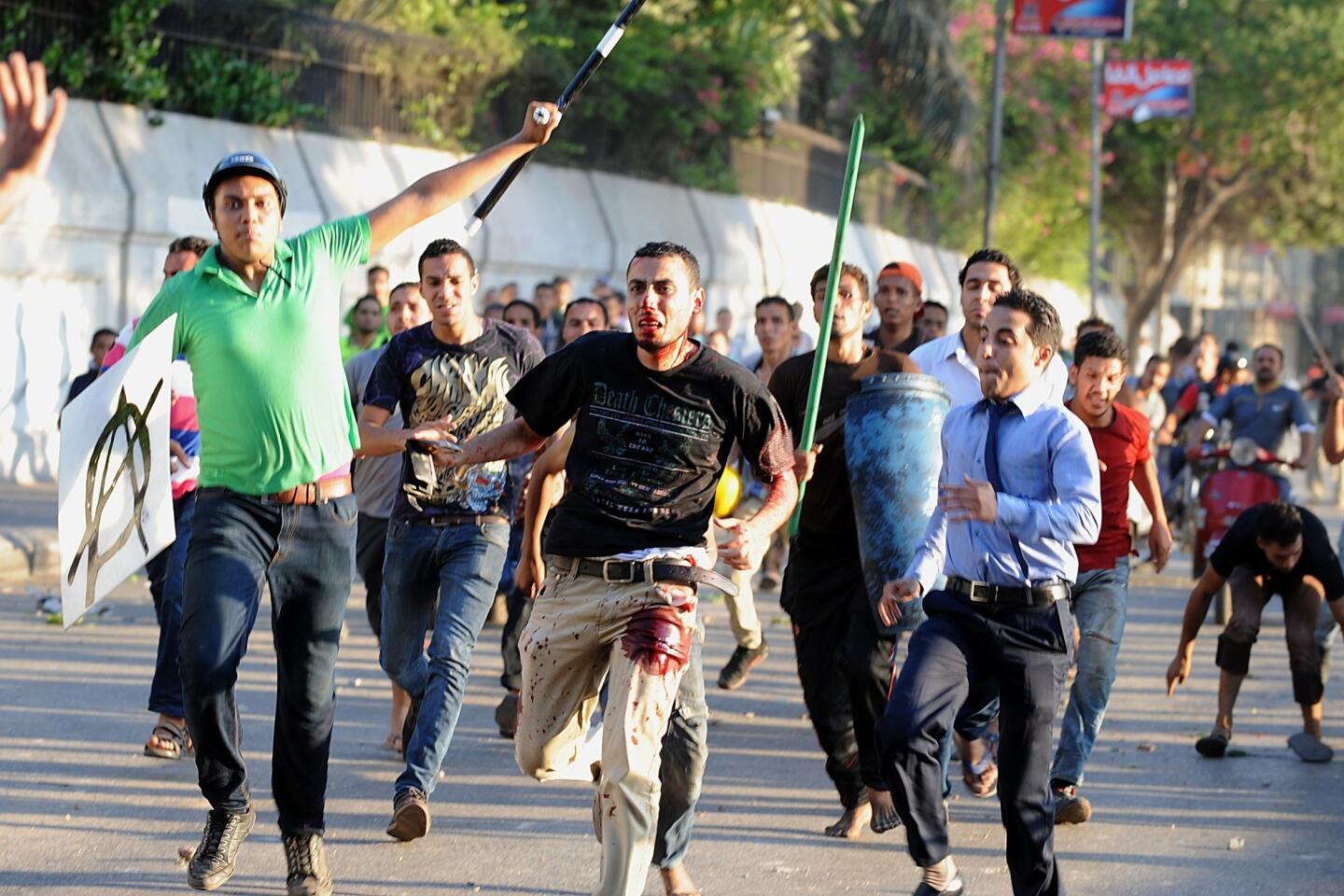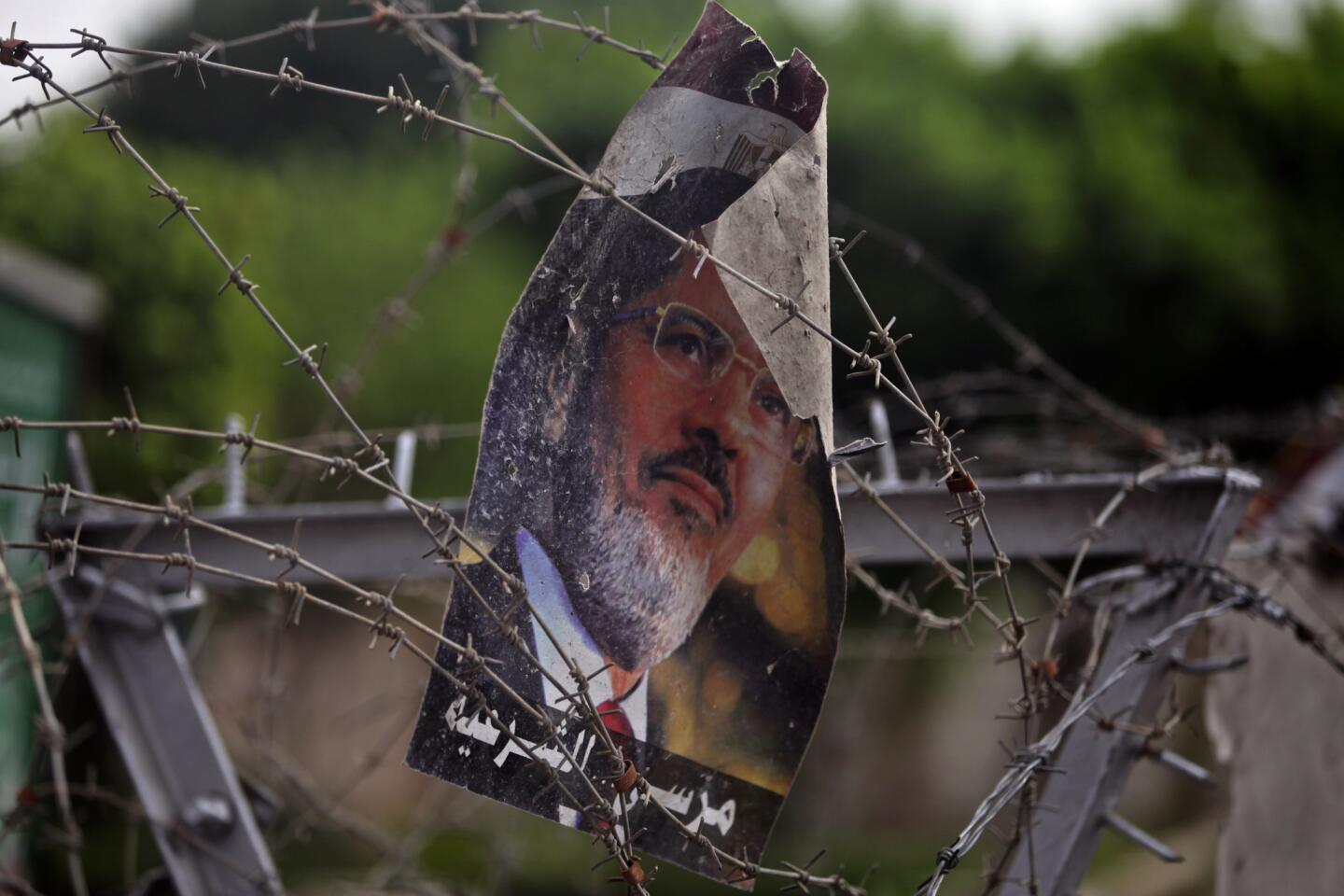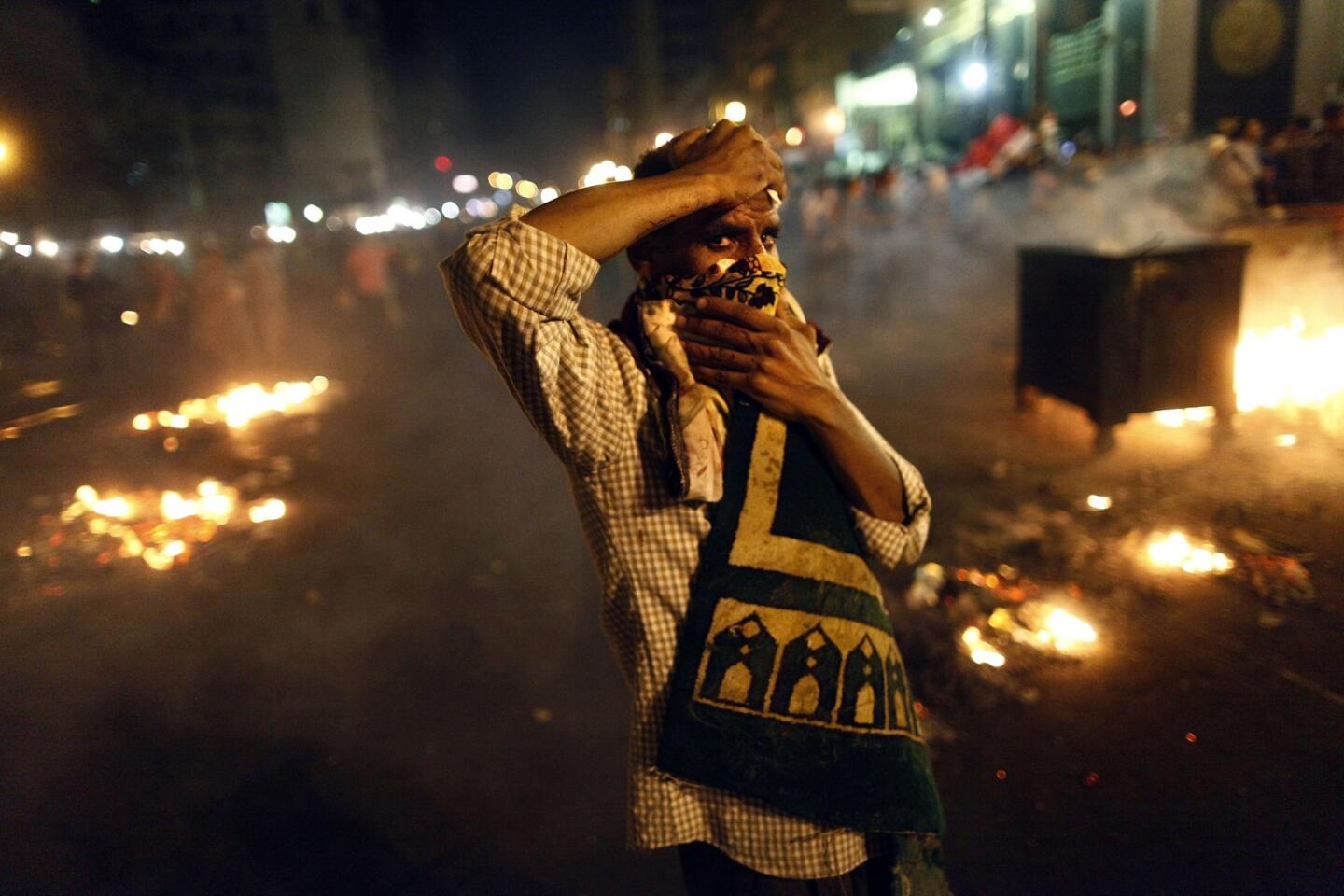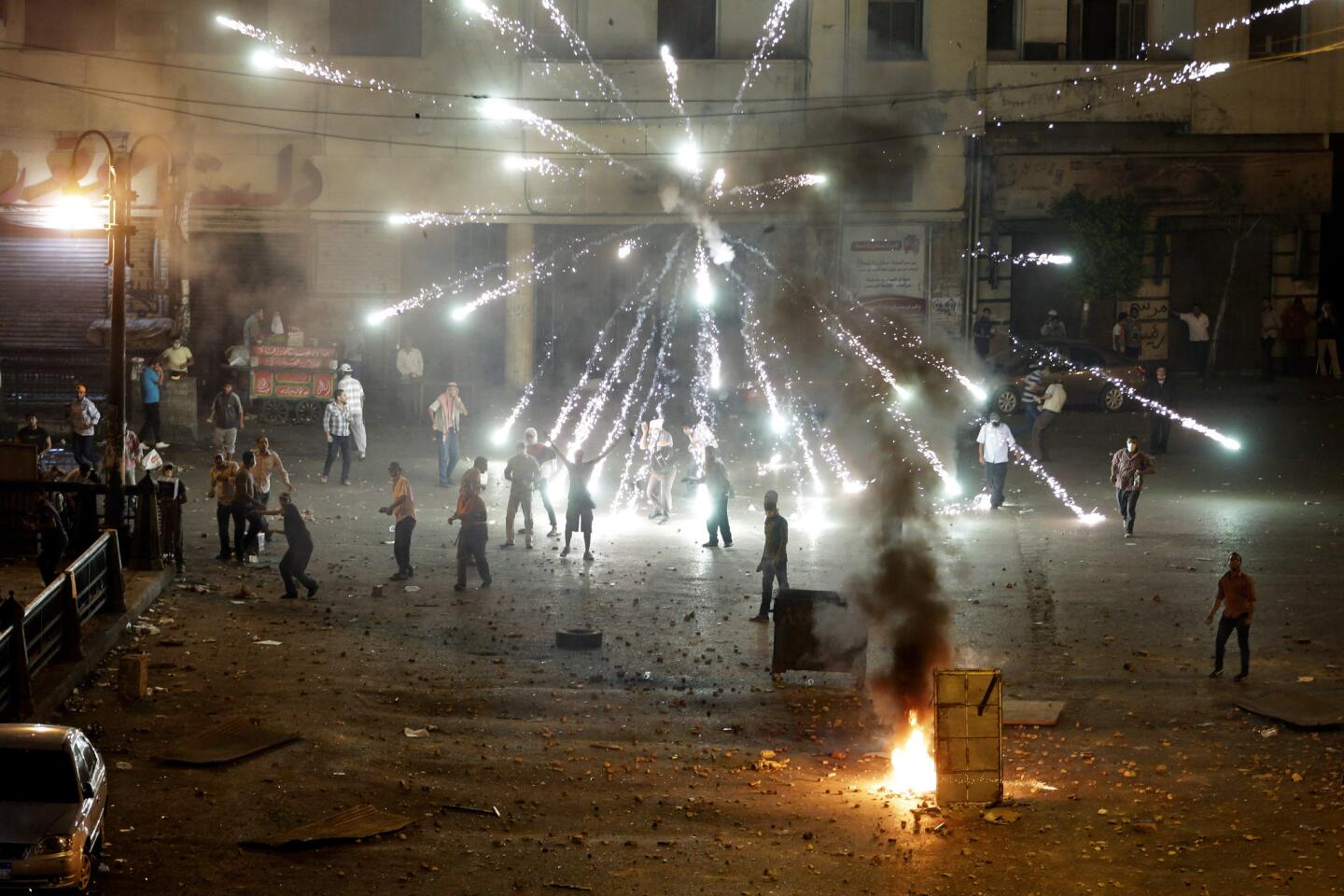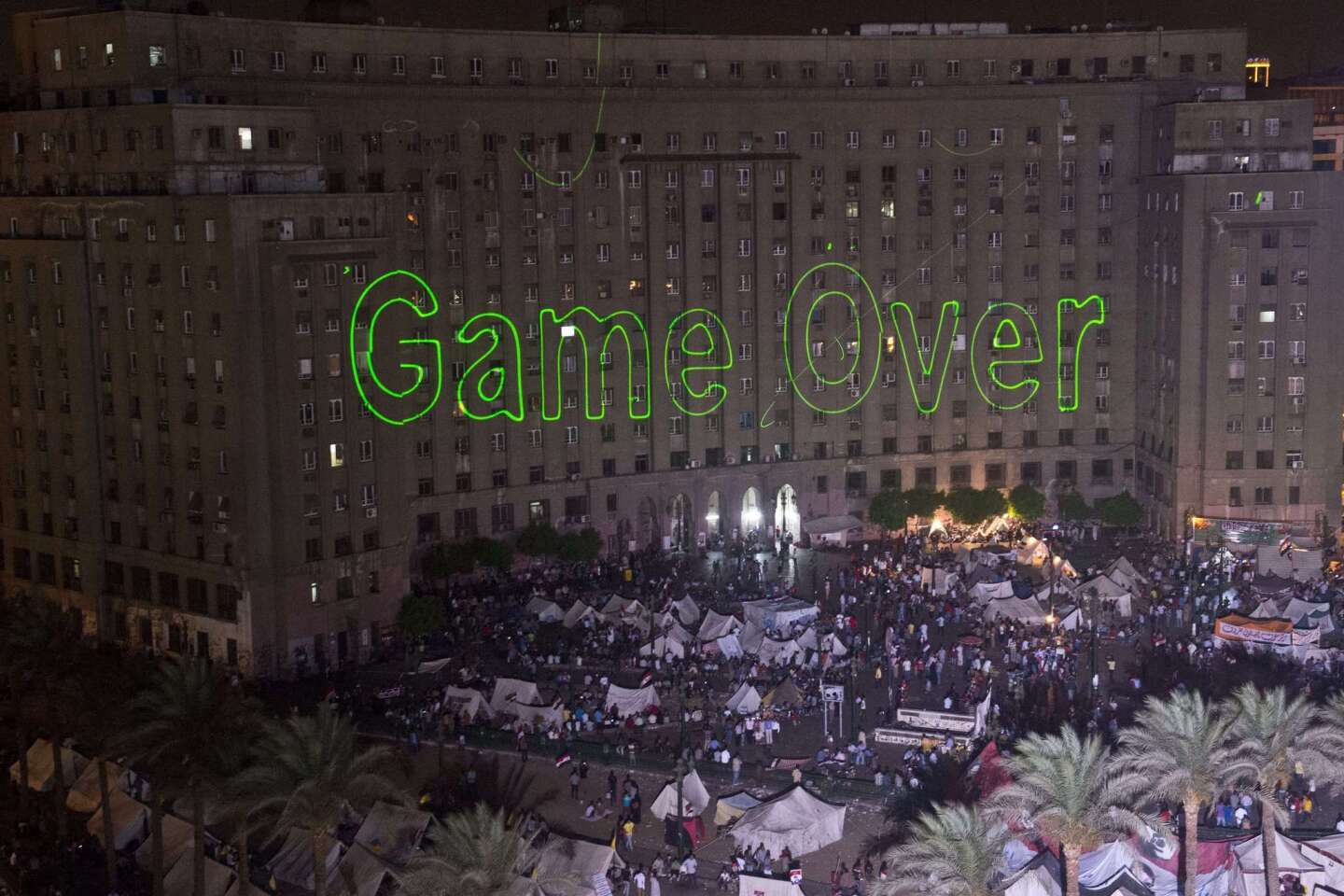Ousted Egyptian President Mohamed Morsi to stand trial next month
- Share via
CAIRO -- Deposed Egyptian President Mohamed Morsi will be put on trial next month, the state news agency reported Wednesday.
Morsi, who has been detained since the military forced him from office on July 3, will face charges of inciting the killing of opponents, an accusation that his supporters in the Muslim Brotherhood have called trumped-up.
The trial is set to begin Nov. 4 in the Cairo Appeals Court, according to the official MENA news agency.
In the months since the Islamist leader was ousted, his followers have taken to the streets en masse, demanding his reinstatement and clashing repeatedly with police and troops. In the deadliest confrontation, security forces in mid-August broke up protest camps set up by Morsi’s supporters, killing nearly 1,000 of them.
That bloody episode, and the arrests of as many as 2,000 Brotherhood supporters, temporarily dampened rallies and marches. However, in the last few weeks the organization has regrouped, staging large protests on Sunday as the nation marked a major military holiday. Security forces fired live ammunition at Brotherhood marchers, leaving 57 people dead, according to the government’s tally.
The decision to put Morsi on trial comes at a highly fraught moment in Egyptian-American relations. The Obama administration, spurred by Morsi’s ouster and the crackdown against the Brotherhood, is weighing cuts in American military assistance that are expected to be announced soon. Egyptian public opinion, always volatile, has taken a sharp anti-foreign turn, with state media accusing the U.S. of supporting terrorism.
Fourteen senior leaders of the Brotherhood are to be tried along with Morsi, according to the MENA report. Most of the leadership is in jail, but several key figures are fugitives and will be tried in absentia.
In recent weeks, Egyptian authorities have moved systematically against the Brotherhood on the legal front. The organization has been formally banned, and its assets were ordered seized.
Morsi has been allowed almost no visitors in captivity. He was allowed to speak by telephone last month with family members, and a European Union envoy visited him.
The charges against the deposed leader date back to his turbulent year in office. On Dec. 4, tens of thousands of protesters staged a sit-in outside the presidential palace, with some threatening to storm it. Clashes then erupted between the protesters and Brotherhood backers, leaving at least 10 people dead.
The Brotherhood and its Freedom and Justice party have said their supporters were acting to defend Morsi because police made no move to disperse the protesters or protect the palace.
ALSO:
Romanian law ordering death for stray dogs stirs protest worldwide
13 federal police in Mexico accused of being part of kidnapping ring
Syria releases video of purported chemical weapons inspectors at work
More to Read
Sign up for Essential California
The most important California stories and recommendations in your inbox every morning.
You may occasionally receive promotional content from the Los Angeles Times.
